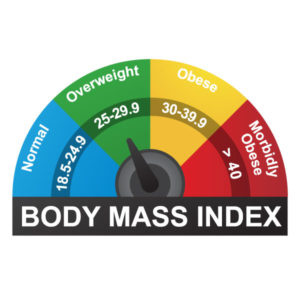Now that the New Year is right around the corner, it may be a good time for those among us battling extreme weight issues and obesity to consider “getting off the fence” and making a resolution to do something constructive about it. Consider the possibility that 2017 can be the year for many to start a new life geared toward better health and nutrition!
Rivka Galchen recently wrote an excellent expose’ about bariatric surgery titled, “Bariatric Surgery: The Solution to Obesity?” with a sub-title that states: “Diet and exercise alone rarely help people lose weight and keep it off. Are operations the answer?”
As we approach the start of a new year, let’s consider that question and some interesting facts and information about weight loss and bariatric surgery as an acceptable, low risk and valid remedy for obesity:
 Since the early nineties, bariatric surgeries performed increased from fewer than 20,000 to around 200,000;
Since the early nineties, bariatric surgeries performed increased from fewer than 20,000 to around 200,000;- Only in the past few years has what was once considered a high-risk and extreme measure been transformed into a relatively standard, safe and straightforward one;
- There is a strong consensus that bariatric surgery is effective, and Medicaid now covers it in 48 states (a strong indicator of government acceptance for the effectiveness of bariatric surgery and the subsequent reduction of long term healthcare expenditures for these patients);
- Research into conventional weight-loss methods has repeatedly pointed to an overwhelmingly dispiriting conclusion – that diet and exercise alone, no matter how disciplined the individual, fail overwhelmingly often;
- Only about 1% of those who medically qualify for bariatric surgery get it.
There was an interesting study done in 1956 when ten Swedish women, each at least 125 pounds overweight, agreed to a trial for intestinal bypass. All of the participants had attempted more straightforward ways of losing weight. Following the surgeries, all ten patients experienced dramatic weight loss, with no immediate serious consequences. But then the bypasses were reversed, and after the reversal surgeries, the women regained every pound, sometimes more.
Throughout the 1960s and 1970s stomach stapling became popular. As the field of bariatric surgery began to grow and evolve with new procedures attempted, initially the risks were much higher than today and complications more plentiful. During this same period of time, however, health risks associated with obesity were also becoming quite apparent. These co-morbidities as they are called include:
- Higher rates of stroke and heart disease
- Type 2 diabetes
- Infertility
- Sleep apnea
- Osteoarthritis
- Increased risk of certain cancers
Over time bariatric procedures continued to improve dramatically. The transition to laparoscopy, which became the norm in the past decade, has resulted in fewer complications, less time in the operating room and much shorter recovery times. And physicians now have a better sense of how to prevent and treat the complications of surgery. As recently as 15 years ago there was a 1% chance of dying from a bariatric procedure. Now that is 0.15%, which is less than that for a knee replacement, a procedure commonly recommended to people who have developed joint problems from carrying around excessive weight.
However, it is worth noting that the physician population as a whole remains collectively uninformed about the advances and reduced risks in this field, and it’s not uncommon for many primary care physicians to still be of the old mindset that buys into the obesity stigma that inaccurately views the cause of obesity to be tied more to a person’s dieting self-discipline and exercise regimen than the actual disease process we now understand it to be.
Clinical psychologist, Tom Wadden, from The Center for Weight & Eating Disorders at the University of Pennsylvania states, “. . . there’s no question that bariatric surgery is going to provide a larger and more durable weight loss than life-style modification, medication or even a combination of the two.”
Around 75% of bariatric patients have sustained weight loss five years after their surgery and that percentage is higher if you don’t include lap-band patients in the analysis. Comparatively, weight loss through diet and exercise rarely leads to more than short-term changes. Only a small percentage of these patients see sustained weight loss.
 Currently, one out of three American adults can be said to have obesity as defined medically based on a person’s body mass index (BMI). A 2012 study from the Journal of Health Economics estimated the medical-care costs of obesity in the US in 2005 to have been as high as 190 billion dollars, a figure that is steadily increasing. Today, obesity is second only to tobacco as a killer in this country.
Currently, one out of three American adults can be said to have obesity as defined medically based on a person’s body mass index (BMI). A 2012 study from the Journal of Health Economics estimated the medical-care costs of obesity in the US in 2005 to have been as high as 190 billion dollars, a figure that is steadily increasing. Today, obesity is second only to tobacco as a killer in this country.
According to William Dietz, from the Center for Disease Control & Prevention, “. . . Everything has changed: everything on the dietary side, everything on the physical-activity side – everything.” George Bray, in his 2011 book, “A Guide to Obesity and the Metabolic Syndrome,” cited these reasons for societies weight gain:
- Decades of subsidies for corn, sugar & rice;
- The “Snackwell effect” that developed after studies in the late 1980s suggested people should lower fat intake, leading consumers to consume sugary treats advertised as low-fat or non-fat – advertised in essence as good for you.
- Long commutes
- Sedentary jobs
- Yo-yo dieting
And then there are our electronic devices. Wadden noted, “I’m sure that Steve Jobs wasn’t thinking that he was going to make devices that contributed to people expending 500 – 800 fewer calories a day, but that’s what has happened.”
Marc Bessler, one of the first surgeons in the nation to perform a bariatric procedure laparoscopically in 1997, shared that he had operated on two people from ‘The Biggest Loser’, one of which had actually won. Bessler expressed concern about the unrealistic setting that involves exercising 6 – 8 hours per day. A follow-up study of 14 contestants revealed all but one of the finalists had regained much or most of their original weights. And their metabolic rates had slowed dramatically, making maintaining a healthy weight even more difficult. People who undergo gastric bypass do not tend to experience the same sustained metabolic slowing.
When asked what kind of person is more inclined to choose bariatric surgery, Bessler said, “Well, women, of course. A man who is a hundred pounds overweight, he will still be treated with respect. But a woman who is one hundred pounds overweight – it’s much more difficult for a woman.”
Sander Gilman, author of “Obesity: The Biography (2010) suggests that surgery works best when paired with psychotherapy or behavioral therapy, since there are so often underlying problems to address; you don’t want the symptoms to just transfer to another domain. As one woman who posted in an online post-bariatric surgery blog states, “Once the fat is gone, your real problems are no longer masked – they’re out in the open and you have to deal with them. You’ve always thought skinniness was the cure-all, it can be quite a slap in the face when you get there and find out your problems followed you.”
 Most studies suggest that expenses related to obtaining bariatric surgery are usually recouped within 2 – 3 years because surgeries avert future obesity-related medical expenses. The overwhelming majority of bariatric surgery patients who post online about their experiences are happy they had the procedure. Many describe it as the best decision they have ever made, and that their only regret is not doing it sooner. One patient relayed that after surgery she had the energy to move into her own apartment, to finally get a driver’s license, and go back to school while working a full-time job.
Most studies suggest that expenses related to obtaining bariatric surgery are usually recouped within 2 – 3 years because surgeries avert future obesity-related medical expenses. The overwhelming majority of bariatric surgery patients who post online about their experiences are happy they had the procedure. Many describe it as the best decision they have ever made, and that their only regret is not doing it sooner. One patient relayed that after surgery she had the energy to move into her own apartment, to finally get a driver’s license, and go back to school while working a full-time job.
Bariatric surgeon, Yulia Zak, shared that she’d never had any particular interest in the field until she did a required rotation. “I would be seeing a preoperative patient, often someone who was depressed, maybe unable to find a job, in part because of their mobility and appearance, and who was on insulin meds and blood-pressure meds, and with sleep apnea and high cholesterol,” she said. “Then, right next door, I would see someone for their two-year postoperative appointment, and they would be off those medications, and they might have a baby with them, or a new job. Obesity-related infertility or mobility issues were no longer a problem for them. There was no other field of medicine where I saw people’s lives improved so dramatically.
 So as you enter into a new year, if you are someone who has been considering bariatric surgery but have been leery and afraid, or have been convinced by well-meaning family members or friends that it is too risky to pursue, it may just be time to face the reality that bariatric surgery has evolved greatly and is now a relatively low risk, highly effective way to combat obesity and allow for successful long term weight management and improved health. As you kick off the new year, it might be worth making a New Year’s resolution to consider the benefits of bariatric surgery as the perfect weight loss solution for you!
So as you enter into a new year, if you are someone who has been considering bariatric surgery but have been leery and afraid, or have been convinced by well-meaning family members or friends that it is too risky to pursue, it may just be time to face the reality that bariatric surgery has evolved greatly and is now a relatively low risk, highly effective way to combat obesity and allow for successful long term weight management and improved health. As you kick off the new year, it might be worth making a New Year’s resolution to consider the benefits of bariatric surgery as the perfect weight loss solution for you!
Credits to: Rivka Calchen, “Bariatric Surgery: The Solution to Obesity?” Written for the Annals of Medicine, New York Magazine, September 26, 2016 Issue. http://www.newyorker.com/magazine/2016/09/26/bariatric-surgery-the-solution-to-obesity



